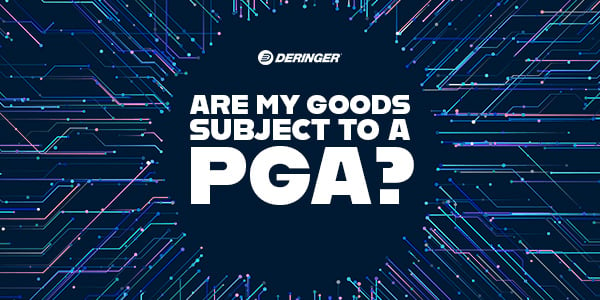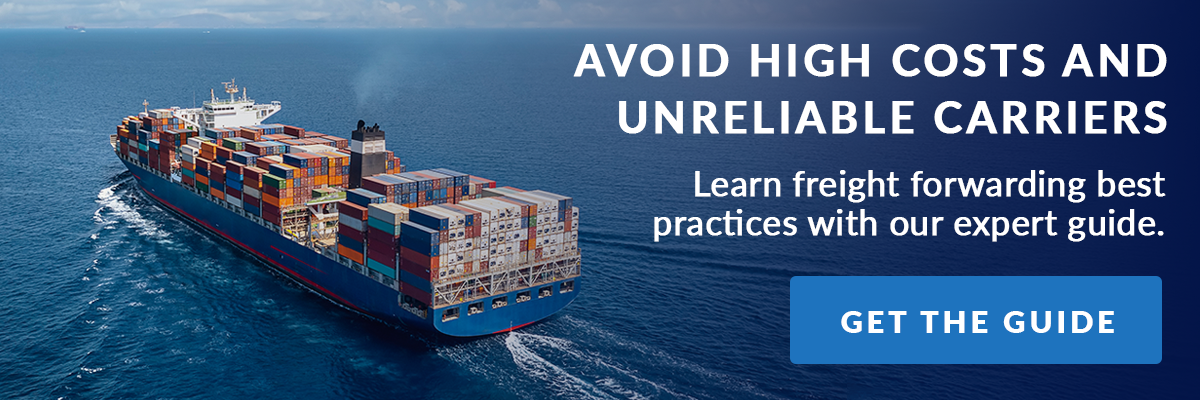
As an importer, the onus is on you to be aware of the regulations that apply to your products. This includes those set by Partner Government Agencies (PGAs).
Familiarity with PGA requirements will help you prevent costly delays at ports of entry, including weight charges, demurrage fees, and storage expenses. Preparing yourself can also help you avoid Customs penalties, which can be extremely high if Customs finds your company in violation. If this happens, Customs could delay your goods or bar their entry completely.
Fortunately, these outcomes are avoidable if Customs has the right information at the port of entry. This starts with knowing if your goods are covered by a PGA and ensuring you meet all PGA requirements.
What is a PGA?
A PGA is a U.S. Government agency with regulatory authority over imports and exports. PGAs work in tandem with U.S. Customs and Border Protection (CBP) to control the flow of goods into the country.
There are nearly 50 agencies that may regulate imports, exports, or domestic goods. Among them are the Food & Drug Administration (FDA), the Environmental Protection Agency (EPA), the National Highway Traffic Safety Administration (NHTSA), and the lesser-known Directorate of Defense Trade Controls (DDTC).
Some PGAs have multiple departments under their umbrella, known as sub-agencies. For example, APHIS is a sub-agency of the U.S. Department of Agriculture.
In 2015, President Obama required all Federal agencies gathering import and export information to work with CBP to accept data electronically. Most Federal agencies now comply with that requirement, with a few notable exceptions, such as the Consumer Product Safety Commission (CPSC), which is still working toward compliance.
Every PGA has unique data and documentation requirements. For instance, the DDTC and the Department of Commerce Office of Textiles and Apparel (OTEXA) have data requirements for importers to uphold. But the Alcohol and Tobacco Tax and Trade Bureau or the Drug Enforcement Agency require permits or licenses to import covered goods.
Some agencies, such as the Fish and Wildlife Service (FWS), can hold goods at the border until they make an admissibility decision. These entities may hold goods pending receipt of the required information, and the goods may not enter the U.S. until these steps are completed.
Two PGAs do not currently require data on imports: the National Organics Program and the CPSC. However, the National Organics Program will start data collection later in 2023. The CPSC receives information from CBP but has no data reporting or licensing requirements.
How Do I Know if My Goods are Subject to a PGA?
Most PGAs provide Customs with the tariff numbers they are interested in and assign a three-character alphanumeric code to each one. This code shows the product is or may be subject to their regulatory oversight and informs Customs and Customs brokers what information to submit through the ACE portal.
These PGA flags make it easier to import goods, but your goods may still be under PGA oversight even if no PGA flags can be found. A new or unique use of a product may not have an existing tariff classification that requires PGA oversight. For example, ski companies started selling ski wear equipped with avalanche rescue devices years ago. The goods were classified as jackets and were not flagged for FCC oversight, but the jackets had a transmitter in them, which made them subject to FCC regulations.
What are Holds, Reviews, and Releases?
There are several actions a PGA can take after goods arrive. They can release your goods, put them under review, or place them on hold. The gold standard is to get a release to cross the border.
Goods can be held in two different ways. It is important to understand the conditions of a product hold. Should the goods stay at the port of entry, or should they go on to their destination? Some agencies, like the FDA, have hold authority. When your goods arrive at the port of entry, they can hold them until some action is taken, be it an exam, a document review, or a sample with a test result. Other agencies, like CPSC, allow goods to continue to their destination despite issuing a hold. Here, goods go through further review at their destination.
Under review is another action Customs can take. When ACE results show goods are under review, it’s not always bad. It can mean the PGA is reviewing the documents and will release the shipment later.
Importers should look at the ACE system to learn the status of their goods. Most brokers also have a tool to see CBP and PGA release messages. Once you get both releases, ACE will issue a 1USG release, which means all conditions have been met and all agencies with authority over your products have released them.
Remember, there may be more than one PGA involved with your shipment. For example, a product could be regulated by both the FDA and EPA. Goods will not receive a 1USG release until release requirements from every PGA are met.
How to Avoid Shipment Delays at the Point of Entry
All Customs documentation needs to be completed using clear English descriptions. The invoice description needs to be understood by everyone. Customs will not guess what a bad description means.
It is also important to consider if the PGA operates at the port of entry. If it does, what are the PGAs hours of operation? Goods arriving at a port where the PGA isn’t present can delay the release. Know what agencies are at which port and what their hours are. Customs is open 24 hours a day, seven days a week, but most agencies have set hours and take weekends and holidays off.
Consider the requirements of your clients. Some clients require goods to be released before they will accept them. Knowing what your clients require will prevent delays, storage, and other charges.
Why Won’t CBP Release My PGA Shipment?
Customs might not release a shipment to the PGA for several reasons:
- Post Release Inspections. After CBP releases goods, some PGAs do inspections. For example, the Food Safety Inspection Service (FFIS) does inspections at off-site meat inspection facilities. CBP notifies FFIS about arriving goods. If goods don’t show up for inspection, FFIS will contact the importer. It’s important to be aware of necessary inspections and ensure they occur.
- Sampling Requirements. Sampled shipments must be held. When goods come across the border, particularly those under the purview of the FDA, they are sampled. The goods may continue to their destination, but once they reach it, they must be held intact pending an admissibility determination. The company receiving the shipment can’t distribute goods until that happens. If the goods fail the sampling test, CBP will issue a notice asking the company to return or destroy the goods. Heavy fines may result if this doesn’t happen.
- Notices of Action. These are letters issued by PGAs to inform you of what’s happening with your shipment. Once CBP samples goods, it issues a Notice of Action and lets you know if they are finally released or refused admission.
- Liquidated Damages. Occurs when a company fails to hold a submission until a Customs release. Fines can be up to three times the value of the products and up to the maximum amount of an importer’s bond. The minimum bond amount is $50,000. If you have a shipment worth $20,000, you will max out your bond and be on the hook for $50,000. This mistake is costly and preventable.
Takeaway
It is important to know if your goods fall under the oversight of a PGA. Familiarity with PGA requirements can help you prevent costly shipping delays and unexpected expenses and fines.
A knowledgeable Customs broker can walk you through understanding PGAs and is the best way to ensure you comply with all the applicable PGA laws relating to your goods.



